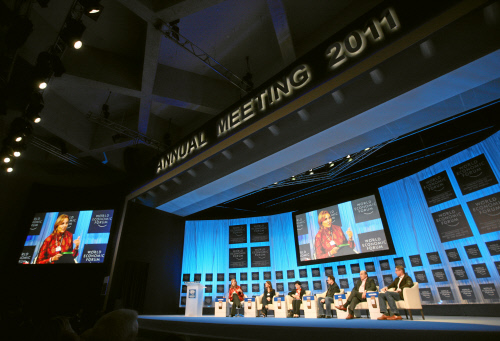The most sustainable companies in the world have been revealed at the World Economic Forum in Davos, with players like Ricoh, Nokia, Philips, Intel, Vodafone and HP, Panasonic and Samsung all making the green grade on the 2011 Global 100 list.
Ricoh, a specialist in office solutions, managed document services and production printing, has been recognised for its sustainability commitments, both internally in its company practices and also in its approach to raising environmental awareness and providing sustainable innovations that deliver energy and cost savings for its customers.
Speaking following the Davos announcement, Alan Mason, managing director, Ricoh Ireland, said: “Sustainable innovation is at the heart of how Ricoh does business. Environmental governance underpins all aspects of the company, from research and development, product lifecycle management and logistics, to our relationship with suppliers and the way we measure our overall business performance.”
Ricoh has also embraced an aggressive carbon strategy, which has seen the company reduce its carbon footprint by 45,000 tonnes since 2007.

Josette Sheeran, executive director, United Nations World Food Programme; Melinda French Gates, co-chair, Bill & Melinda Gates Foundation; Margaret Chan, director-general, World Health Organization; Bono, co-founder, ONE campaign and (RED), ONE; Muhtar A. Kent, CEO, The Coca-Cola Company; and Lars Rebien Sorensen, CEO, Novo Nordisk, pictured during the session ‘Raising Healthy Children’ in Davos on 28 January 2011. Photo courtesy of World Economic Forum / swiss-image.ch / photo by Remy Steinegger
Environmental, social and governance issues
The companies selected for the Global 100 were chosen from 3,500 corporations in all business sectors. Each firm was analysed in detail and evaluated as the global corporations that have been most proactive in managing environmental, social and governance issues.
Launched in 2005, the Global 100 Most Sustainable Corporations in the World is an annual project initiated by Corporate Knights.
KPIs measured in the Global 100 include:
- Energy productivity
- Carbon productivity
- Water productivity
- Waste productivity
- Leadership diversity
- CEO-to-average worker pay
- Pc of tax paid
- Safety productivity
- Sustainability remuneration (ie whether or not at least one senior officer has his/her pay linked to sustainability)
- Innovation capacity
- Transparency.
Click here for the full list of the companies in the Global 100 2011.